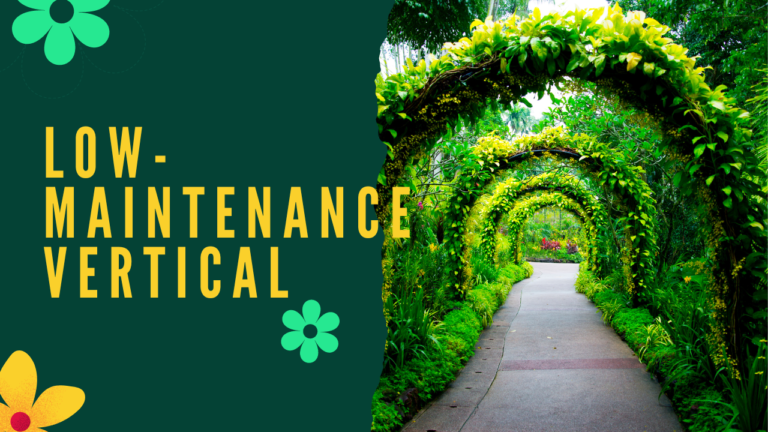Sustainable Balcony Gardening Tips: A Comprehensive Guide
Creating a beautiful, eco-friendly garden in a small space is a rewarding endeavor. Whether you’re a seasoned gardener or a beginner, these sustainable balcony gardening tips will help you make the most of your balcony space while being kind to the environment. Sustainable gardening practices not only benefit the planet but also enhance the health and productivity of your garden.
Why Choose Sustainable Balcony Gardening?
Sustainable balcony gardening is an excellent choice for several reasons:
- Eco-Friendly: Reduces your carbon footprint by growing your own food and using sustainable practices.
- Cost-Effective: Saves money on groceries and reduces waste.
- Health Benefits: Provides access to fresh, organic produce.
- Aesthetic Appeal: Creates a green oasis in your home, improving mental well-being.
Planning Your Sustainable Balcony Garden
Assessing Your Space
Before diving into sustainable balcony gardening, assess your available space. Consider the following:
- Sunlight: Determine how much sunlight your balcony receives. Most plants need at least 6 hours of sunlight per day.
- Wind Exposure: Balconies can be windy, so choose plants that can withstand gusts or create windbreaks.
- Weight Limits: Ensure your balcony can support the weight of containers, soil, and plants.
Choosing Sustainable Materials
Use sustainable materials wherever possible. Here are some ideas:
- Recycled Containers: Use old buckets, cans, or other containers you already have.
- Biodegradable Pots: Opt for pots made from natural materials like coconut coir or peat.
- Organic Soil: Choose organic potting mix free from synthetic chemicals.
Sustainable Balcony Gardening Tips: Getting Started
Selecting the Right Plants
Choosing the right plants is crucial for a successful sustainable balcony garden. Consider:
- Native Plants: They are well-suited to your local climate and require less water and maintenance.
- Edible Plants: Grow herbs, vegetables, and fruits to enjoy fresh produce.
- Perennials: These plants come back year after year, reducing the need for replanting.
Using Vertical Space
Maximize your balcony space by growing plants vertically. Here are some ideas:
- Trellises and Lattices: Support climbing plants like beans, peas, and cucumbers.
- Hanging Baskets: Perfect for trailing plants and herbs.
- Vertical Planters: Use stacked planters or wall-mounted systems to grow more in less space.
Soil and Composting
Creating a Healthy Soil Mix
Healthy soil is the foundation of a sustainable garden. Create your own mix using:
- Compost: Adds nutrients and improves soil structure.
- Coconut Coir: Retains moisture and promotes root growth.
- Perlite or Vermiculite: Enhances drainage and aeration.
Composting on Your Balcony
Composting is an excellent way to recycle kitchen waste and create nutrient-rich soil. Here’s how:
- Choose a Compost Bin: Select a compact compost bin suitable for small spaces.
- Add Kitchen Scraps: Include vegetable peels, coffee grounds, and eggshells.
- Balance Greens and Browns: Ensure a good mix of green (nitrogen-rich) and brown (carbon-rich) materials.
Watering and Irrigation
Watering Efficiently
Efficient watering is essential for sustainable gardening. Follow these tips:
- Water in the Morning: Reduces evaporation and allows plants to absorb moisture before the heat of the day.
- Use a Watering Can: Helps control the amount of water and targets the roots.
- Mulch: Apply a layer of mulch to retain moisture and reduce the need for frequent watering.
Installing a Drip Irrigation System
Drip irrigation systems are highly efficient and reduce water waste. Consider installing one on your balcony:
- Easy to Set Up: Kits are available that are simple to install and maintain.
- Consistent Watering: Provides a steady supply of water directly to the plant roots.
- Water Conservation: Reduces runoff and evaporation.
Pest Control
Natural Pest Control Methods
Avoid synthetic pesticides by using natural pest control methods:
- Beneficial Insects: Encourage ladybugs, spiders, and other beneficial insects.
- Neem Oil: A natural insecticide that repels a wide range of pests.
- Companion Planting: Plant certain herbs and flowers that deter pests, such as marigolds and basil.
Sustainable Balcony Gardening Tips: Maintenance
Regular Pruning and Deadheading
Keep your plants healthy and productive by regular pruning and deadheading:
- Remove Dead Leaves and Flowers: Encourages new growth and prevents disease.
- Pinch Back Herbs: Promotes bushier growth and prevents legginess.
Rotating Crops
Rotate your crops each season to prevent soil depletion and reduce pest problems:
- Change Plant Locations: Avoid planting the same crops in the same spot year after year.
- Diversify Plantings: Grow a variety of plants to improve soil health and biodiversity.
Sustainable Balcony Gardening Tips: Advanced Techniques
Rainwater Harvesting
Collect rainwater to use in your garden. This is an excellent way to conserve water:
- Rain Barrels: Place barrels under downspouts to collect rainwater.
- Watering Cans: Use collected rainwater to irrigate your plants.
DIY Fertilizers
Make your own fertilizers using natural ingredients:
- Compost Tea: Soak compost in water to create a nutrient-rich liquid.
- Eggshells and Banana Peels: Crushed eggshells and banana peels add calcium and potassium to the soil.
Final Thoughts on Sustainable Balcony Gardening Tips
Creating a sustainable balcony garden is not only beneficial for the environment but also for your personal well-being. By following these sustainable balcony gardening tips, you can transform your small space into a thriving, eco-friendly oasis. Remember, every small step towards sustainability makes a big difference in the long run.
FAQs
1. Can I start a sustainable balcony garden if I have limited sunlight?
Yes, you can grow shade-tolerant plants like lettuce, spinach, and herbs such as mint and parsley.
2. How often should I water my balcony garden?
Watering needs vary depending on the plants and weather conditions. Check the soil moisture regularly and water when the top inch feels dry.
3. What are some easy-to-grow plants for beginners?
Herbs like basil, mint, and chives, as well as vegetables like tomatoes and lettuce, are great for beginners.
4. How can I prevent pests in my balcony garden?
Use natural pest control methods such as neem oil, companion planting, and encouraging beneficial insects.
5. Is composting practical for small spaces?
Yes, there are compact compost bins designed for small spaces, making it easy to compost kitchen scraps on your balcony.
By incorporating these sustainable balcony gardening tips into your gardening routine, you’ll not only create a beautiful and productive garden but also contribute positively to the environment. Happy gardening!




